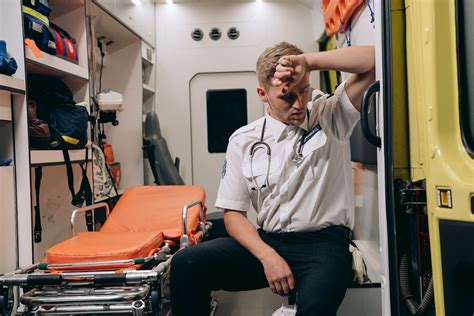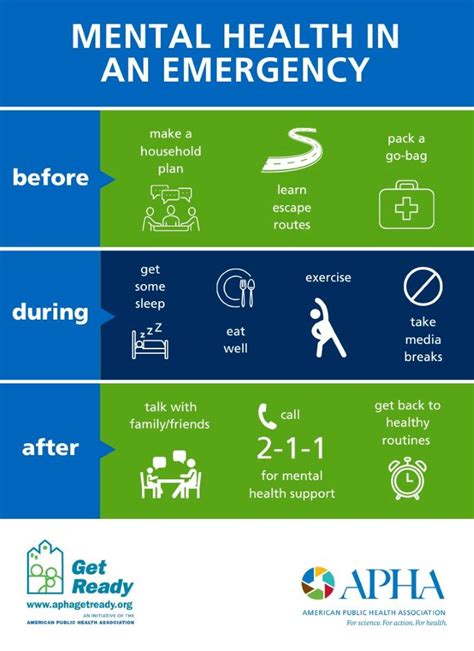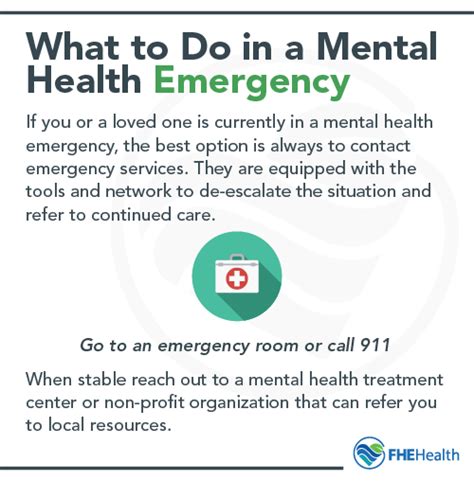Intro
Call the Mental Health Emergency Number for crisis support. Get immediate help for suicidal thoughts, anxiety, and depression with 24/7 hotline services and counseling.
In today's fast-paced world, mental health has become a topic of increasing importance. The pressures of modern life, combined with the stigma surrounding mental illness, can make it difficult for individuals to seek help when they need it most. However, it's crucial to recognize the signs of a mental health emergency and know where to turn for support. A mental health emergency number can be a lifeline for those struggling with their mental wellbeing, providing access to immediate guidance and care.
Mental health emergencies can take many forms, from suicidal thoughts and feelings of overwhelm to psychotic episodes and traumatic experiences. In these situations, every minute counts, and having a reliable mental health emergency number to call can make all the difference. Whether you're struggling with your own mental health or concerned about a loved one, knowing who to contact and what to expect can help alleviate anxiety and ensure the best possible outcome. By understanding the importance of mental health emergency numbers and how they work, we can better support ourselves and those around us during times of crisis.
The importance of mental health emergency numbers cannot be overstated. In the United States alone, the National Alliance on Mental Illness (NAMI) estimates that one in five adults experiences mental illness each year, with one in twenty living with a serious mental illness such as schizophrenia or bipolar disorder. Meanwhile, the Centers for Disease Control and Prevention (CDC) report that suicide is the tenth leading cause of death in the country, accounting for over 47,000 deaths in 2020. By providing a direct line to mental health professionals and support services, mental health emergency numbers can help individuals navigate these challenges and find the help they need to recover.
Mental Health Emergency Services

Mental health emergency services are designed to provide immediate support and guidance during times of crisis. These services may include phone hotlines, text messaging services, and online chat platforms, all of which connect individuals with trained mental health professionals. Some examples of mental health emergency services include the National Suicide Prevention Lifeline (1-800-273-TALK) and the Crisis Text Line (text "HOME" to 741741). These services are typically available 24/7 and offer confidential support for individuals struggling with mental health issues.
How Mental Health Emergency Services Work
Mental health emergency services typically involve a simple and straightforward process. When an individual contacts a mental health emergency number, they will be connected with a trained mental health professional who can assess their situation and provide guidance and support. This may involve discussing the individual's feelings and concerns, identifying potential coping strategies, and connecting them with local resources and services. In some cases, mental health emergency services may also involve dispatching emergency responders, such as police or ambulance crews, to provide in-person support.Benefits of Mental Health Emergency Numbers

The benefits of mental health emergency numbers are numerous and well-documented. Some of the key advantages of these services include:
- Immediate support: Mental health emergency numbers provide immediate access to trained mental health professionals, who can offer guidance and support during times of crisis.
- Confidentiality: Mental health emergency services are typically confidential, allowing individuals to seek help without fear of judgment or repercussions.
- 24/7 availability: Many mental health emergency services are available 24 hours a day, 7 days a week, providing support whenever it's needed.
- Connection to local resources: Mental health emergency services can connect individuals with local resources and services, such as counseling, support groups, and treatment programs.
Common Mental Health Emergencies
Mental health emergencies can take many forms, but some common examples include:- Suicidal thoughts or feelings: If an individual is experiencing suicidal thoughts or feelings, it's essential to seek help immediately.
- Psychotic episodes: Psychotic episodes, characterized by hallucinations, delusions, or disorganized thinking, can be a sign of a mental health emergency.
- Traumatic experiences: Individuals who have experienced traumatic events, such as physical or emotional abuse, may require immediate support and guidance.
- Overwhelming anxiety or depression: If an individual is experiencing overwhelming anxiety or depression, it's crucial to seek help to prevent the situation from escalating.
How to Use Mental Health Emergency Numbers

Using mental health emergency numbers is a straightforward process. Here are some steps to follow:
- Identify the emergency: If an individual is experiencing a mental health emergency, it's essential to recognize the signs and seek help immediately.
- Choose a mental health emergency number: There are several mental health emergency numbers available, including the National Suicide Prevention Lifeline and the Crisis Text Line.
- Contact the mental health emergency number: Once you've chosen a mental health emergency number, contact the service using the provided phone number or text messaging service.
- Follow the prompts: When you contact a mental health emergency number, you'll typically be connected with a trained mental health professional who can assess your situation and provide guidance and support.
Mental Health Emergency Number Examples
Some examples of mental health emergency numbers include:- National Suicide Prevention Lifeline: 1-800-273-TALK (8255)
- Crisis Text Line: text "HOME" to 741741
- Substance Abuse and Mental Health Services Administration (SAMHSA) National Helpline: 1-800-662-HELP (4357)
Conclusion and Next Steps

In conclusion, mental health emergency numbers play a critical role in supporting individuals during times of crisis. By providing immediate access to trained mental health professionals and connecting individuals with local resources and services, these numbers can help prevent mental health emergencies from escalating and improve overall mental wellbeing. If you or someone you know is experiencing a mental health emergency, don't hesitate to reach out to a mental health emergency number for support.
Final Thoughts
Mental health emergency numbers are a vital resource for individuals struggling with mental health issues. By understanding how these services work and how to use them, we can better support ourselves and those around us during times of crisis. Remember, mental health emergencies are a serious issue that requires immediate attention, and seeking help is the first step towards recovery.What is a mental health emergency number?
+A mental health emergency number is a phone number or text messaging service that connects individuals with trained mental health professionals during times of crisis.
How do I use a mental health emergency number?
+To use a mental health emergency number, simply contact the service using the provided phone number or text messaging service, and follow the prompts to connect with a trained mental health professional.
What are some examples of mental health emergency numbers?
+Some examples of mental health emergency numbers include the National Suicide Prevention Lifeline (1-800-273-TALK) and the Crisis Text Line (text "HOME" to 741741).
We hope this article has provided you with a comprehensive understanding of mental health emergency numbers and how they can support individuals during times of crisis. If you have any further questions or concerns, please don't hesitate to reach out. Remember, seeking help is the first step towards recovery, and there are resources available to support you every step of the way.
